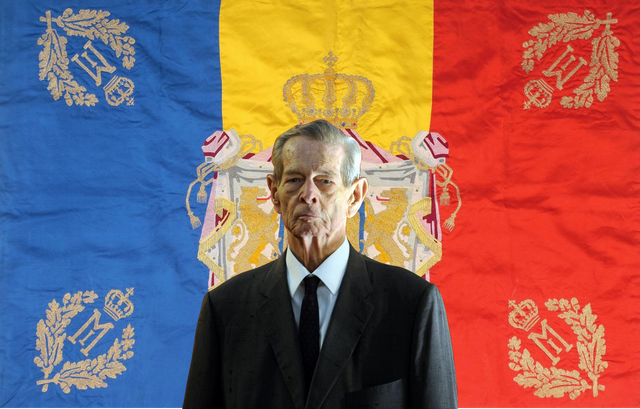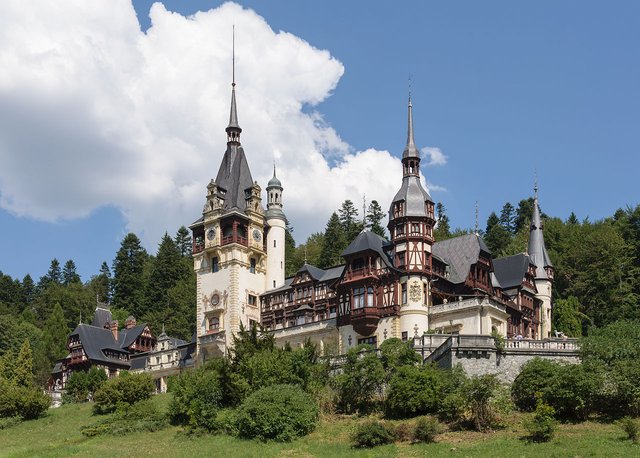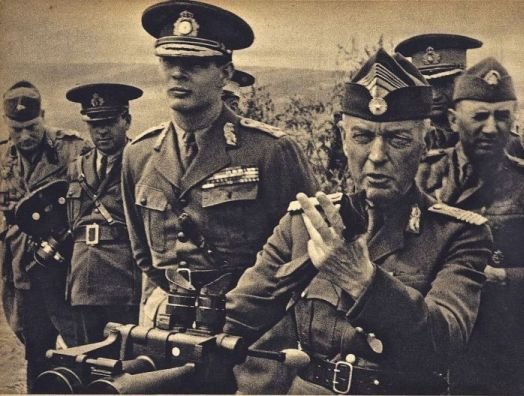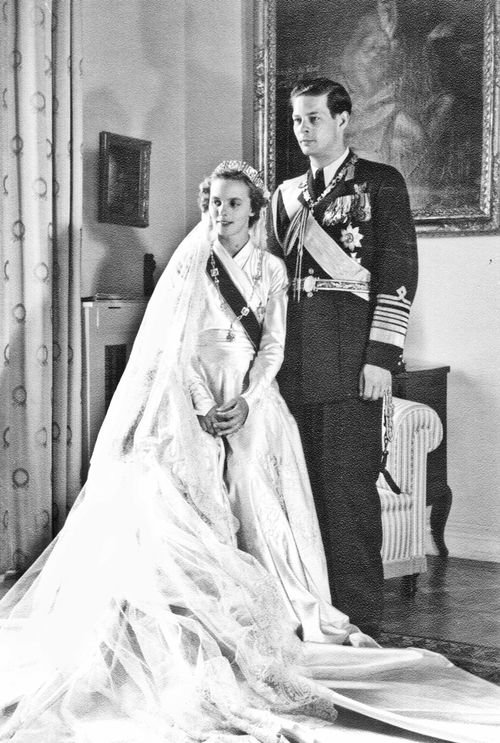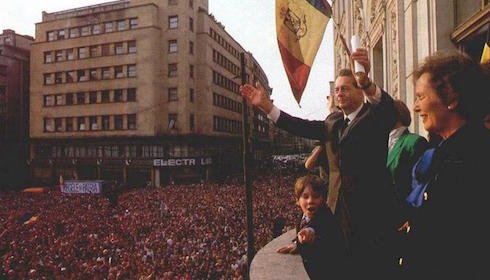Romania in mourning
Today is a sad day for Romania, as the last king in Eastern Europe departs the land of the living at the age of 96. King Mihai I's death marks the end of an era for my country, as the last prominent figure of the romanian monarchy. The charismatic leader had no real state power, as Romania is now a democratic republic, but would occasionally weigh in his opinion on state affairs and his take was taken seriously, as he was loved by the romanian people. Such appearances were rare, but when they did occur, he had a way of exposing corruption without naming names, and pointing out a desirable solution to the issues.
Early Life
He was born on the 25th of October, 1921, in Peles Castle, as the grandson of reigning kind, Ferdinand I, son of Prince Carol II of Romania and Princess Helen of Greece and Denmark. He was forced to take the helm of the country at only age six under a regency, because his father, Carol II, fled the country with a mistress, Elena "Magda" Lupescu, two years prior. In 1930, his father had return at the behest of politicians dissatisfied with the regency, who needed a leader during the trying times of the Great Depression. In 1940, Marshall Ion Antonescu staged a coup d'etat against Carol II, forced him to abdicate, and assumed command of the country and allied it with nazi Germany, placing 18-year old Mihai as a puppet head of state to appease the people.
Switching allegiance
Though he was technically king since 1940, he was only a figure head to represent the state in the name of nazi puppet-master, Ion Antonescu. Thus he met the infamous fuhrer, Adolf Hitler, twice (1937 and 1941), and Benito Mussolini (1941). But, as the tides of war was turning and a russian invasion of Romania was imminent, king Mihai joined pro-allies politicians and staged a coup against the fascist dictator, Ion Antonescu, who was later executed by the soviets. Thus, on the 23rd of August, 1944, Romania turned its weapons against its former axis ally. However, no good deed goes unpunished, and 130,000 romanian troops were arrested by the red army and sent to prison camps.
The coup, spearheaded by romanian royalty, is thought to have shortened World War II by around six months, possibly saving hundreds of thousands of lives in the process. This move earned him the Chief Commander of the Legion of Merit, the highest degree, by then US President, Harry S. Truman, and the soviet Order of Victory by Joseph Vissarionovich Stalin. But the soviet occupation forced their will, by installing a puppet government and forcing the king to be merely a figurehead once more. He refused to signed their decrees, in an attempt to protest and uphold democracy but, on the 30th of December, 1947, he was held at gunpoint by troops loyal to the communist party, and forced to abdicate at the threat that the government would execute 1,000 anti-communist student protesters.
Life in exile
On the 10th of June, 1948, he married Princess Ana of Bourbon-Parma in Athens, Greece, becoming parents of five daughters, Crown Princess Margareta and Princesses Elena, Irina, Sophie and Maria, between 1949 and 1964. This marriage was not approved by the Catholic Church who demanded that King Mihai would raise his children as catholic, a demand that he refused.
Forced into exile with merely 500,000 swiss francs, and stripped of his romanian citizenship by the communist regime, the couple lived near Florence, Italy in 1948, moved near Lausanne, Switzerland for two years and then to Hampshire, England, until 1956. They finally settled in Versoix, Switzerland, where they would live for the next 45 years. There, the king worked as a farmer, broker, entrepreneur. He also worked as a pilot, thus sustaining his hobby, at the same time. He was also passionate about automobiles, especially military jeeps.
Another thing of note during his exile, is the fact that he never saw his womanizing father after his abdication in 1940. He also refused to attend his funeral in 1953, because he was furious of how he openly humiliated his mother.
He also contributed to Radio Europa Libera (Radio Free Europe) to keep in touch with the romanian people, in an attempt to spur revolt against the red plague, and attempted to liase with western powers to aid in this attempt.
Life after Romania's return to democracy
On the 25th of December, 1990, exactly one year after the former communist dictatator, Nicolae Ceausescu was executed, King Mihai I returned to Romania after 43 years, using a danish passport. However, he was stopped by a police filter, and forced to leave the country. He returned again in 1992, for Easter celebrations and gave a speech from his hotel room, which drew in around 1,000,000 romanians who wished to see and hear him speak. This alarmed the sitting president, the supposedly "former" communist Ion Iliescu, who refused later entry into the country in 1994 and 1995.
Once, he lost elections in 1996, the following president, Emil Constantinescu, reinstated his romanian citizenship and gave back the royal properties, that included Savarsin Castle, Peles Castle, Pelisor Palace (little Peles), and Elisabeta Palace, in 1997. However, most major politicians stood in opposition to the people's sympathies, and did not hold him in high regard.
He would later act as a quasi-ambassador or Romania in the western world, touring the world on behalf of the country, advocating for it's joining NATO and the EU. This, along with a speech held in Parliament in 2011, in honour of his 90th birthday, where he subtly attacked the political class, and urged unification with brothers across the river Prut from the Republic of Moldova and other territories, propelled him as the most trusted person in the country, with over 45% or the people holding the king in high (or very high) regard, 40% neutral, and just 6.5% having a bad opinion of him.
King Mihai I's speech in Parliament, 2011
(there are some spelling errors, but the translation is correct)
His last years were spent mostly at his residence in Switzerlend, after his appearances in public life drew rarer since 2014, and complete retreat in 2016. Also in 2016, Queen Ana died, and he was diagnosed with chronic leukemia and cancer, stage IV. Thus, a medical team, along with two orthodox nuns, were permanently employed, most royal duties being taken over by Crown Princess Margareta. He died today, December 5th, 2017, at his home.
Thus, Romania says goodbye to the man that fought against his very flawed father as a child, the nazis as a teenager, faced the barrel of a gun opposing the communists, and faced multiple arrests and riot due to modern-day political corruption of supposed "former communists, all in order to try to uplift his country. And so, along with my country, I bid farewell to His Majesty, King Mihai I of Romania, of House Hohenzollern-Sigmaringen!
Thank you for reading, and keep on steemin'!
(clicking any image will take you to its source)
